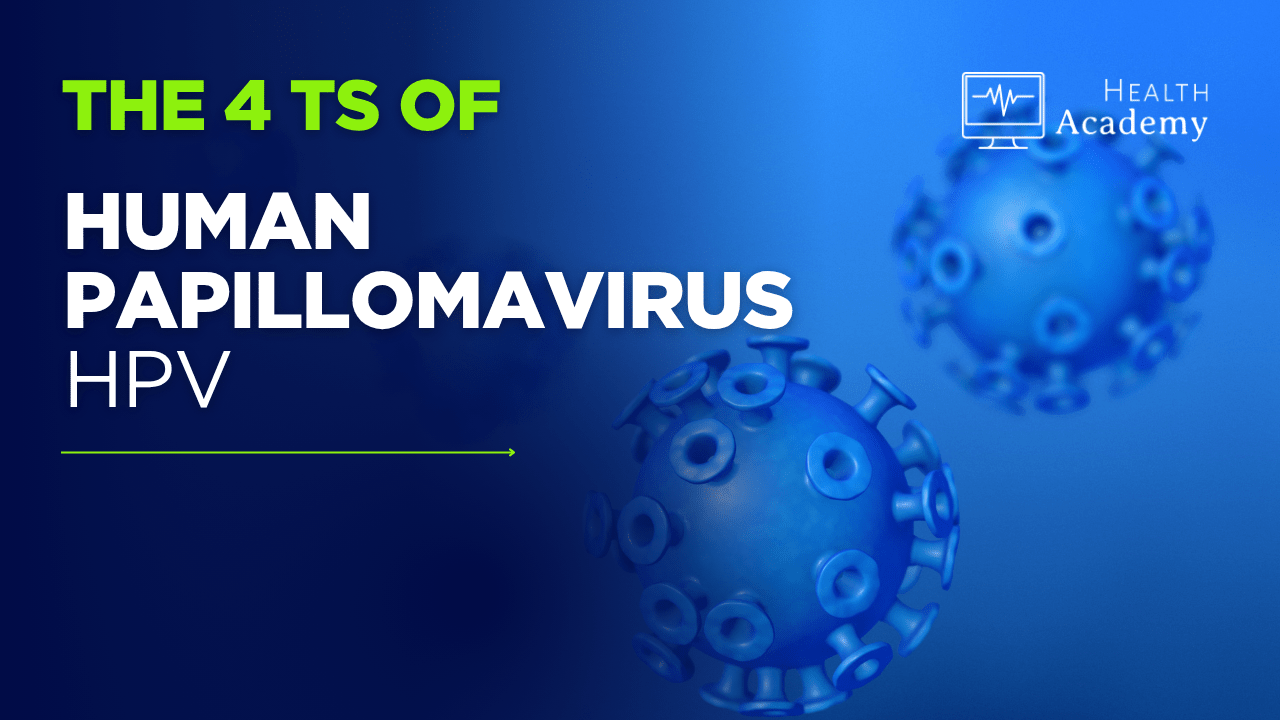
In the third instalment of our 4T’s blog series, we’re turning our attention to HPV (Human Papillomavirus) – a widespread viral infection that often goes unnoticed but can have serious and lasting effects on health, including cancer.
Through this series, we’re breaking down each vaccine-preventable disease featured in the UK immunisation schedule using Health Academy’s clear and practical 4T’s Framework to help you understand the essentials:
HPV isn’t always something that clears up on its own—some types can stay in the body and lead to significant health problems, including cervical and other cancers. 👉 Watch our video below to discover how HPV is transmitted and why vaccination is such a vital step in prevention.
🔹Type: HPV, or Human Papillomavirus, is a widespread virus that infects both women and men. Many types cause no noticeable symptoms and clear up without treatment. However, certain strains can lead to genital warts or develop into cancers of the cervix, anus, mouth, and throat.
🔹Transmission: The virus is mainly passed through intimate skin-to-skin contact, particularly during sexual activity. Because HPV often has no signs or symptoms, individuals can carry and share the virus without realising it. Condoms reduce but don’t eliminate the risk.
🔹Threat: Almost all sexually active people will come into contact with HPV at some stage. While most infections disappear naturally, persistent high-risk types can cause pre-cancerous changes that may progress to cancer over time. People with multiple partners or those who haven’t been vaccinated are especially vulnerable. Regular cervical screening plays a crucial role in early detection.
🔹Treatment & Prevention: Although HPV itself can’t be cured, vaccination is a powerful way to prevent infections that lead to cancer. In the UK, the HPV vaccine is routinely given to boys and girls aged 12–13 and to certain higher-risk groups. Combining vaccination with safer sexual practices and regular screening significantly reduces the risk of HPV-related diseases.
Stay informed and up to date with the latest developments by enrolling in one of our comprehensive Immunisation Courses. Whether you’re refreshing your knowledge or new to the field, our expert-led updates ensure you’re equipped with the most current information and best practices in the field.
This is part of the ‘Health Academy Short Course’ series and provides clinicians with specific information related to the Gardasil 9 vaccine.
This course is suitable for all Registered Healthcare Professionals, including Nurses, Pharmacists and GPs that administer this vaccine in practice.
The course provides 1 hour of CPD
Missed Part 2 of the series? In the second instalment of our 4T’s blog series, we focused on Shingles, a painful condition caused by the reactivation of the chickenpox virus. It can lead to severe nerve pain and other complications, especially in older adults and those with weakened immune systems. 👉 Catch up and watch the full video on shingles here: The 4T’s of Shingles.
Giving you written and video content to answer all your questions on primary care education from Phlebotomy to Travel Health.
Subscribe now to be kept updated with our latest posts and insights.
Notifications